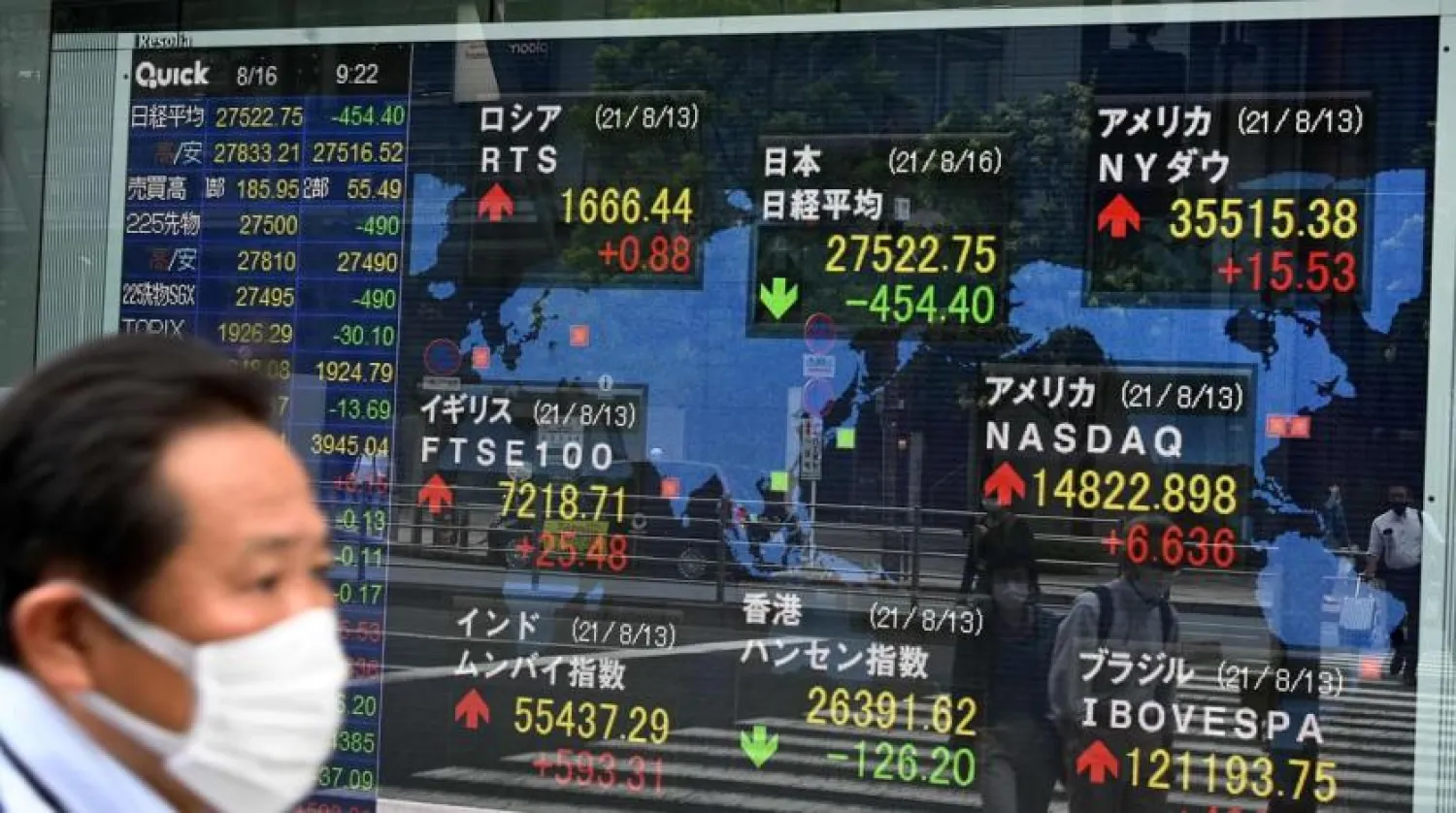Equities bounced back Friday from the previous day's rout with investors taking their lead from a rally on Wall Street after Washington decided against imposing the stiffest sanctions on Russia over its invasion of Ukraine.
Russian President Vladimir Putin's decision to send troops into Ukraine sent shockwaves through Asian and European markets and sent oil past $100 for the first time since 2014 as traders contemplated a major conflict in Eastern Europe.
Speculation had been growing for weeks about an incursion, which has stoked fears about supplies of key commodities including wheat, metals and crude, reported AFP.
Investors have also been fretting over the impact of any sanctions Western leaders would impose on Moscow.
Despite a chorus of outrage at Putin's move, the punishments have so far been seen as well short of the most stringent.
While the latest measures from Washington target Russia's two largest banks and see controls on high-tech items aimed at crippling its defense and aerospace sectors, US President Joe Biden has not cut off oil exports.
The news provided a big boost to Wall Street, where all three main indexes surged from deep in the red to end Thursday on a positive note, while crude eased back below $100.
The Nasdaq was the standout performer, ending more than three percent higher as commentators said the crisis could keep the Federal Reserve from embarking on an aggressive series of interest rate hikes to tame inflation.
Tech firms are more susceptible to higher borrowing costs and have been hammered in recent months on bets for tighter monetary policy.
"Stocks don't always move in the way we expect them to," Callie Cox, at trading platform eToro, said on Bloomberg's "QuickTake Stock" broadcast.
"We're sitting here processing these headlines and trying to understand what they mean for the global economy, but first and foremost, fear is a contrarian indicator.
"While we’re all rightfully fearful right now, some investors may be seeing this as a time to jump back in."
The gains in New York filtered through to Asia, where Tokyo, Shanghai, Seoul, Singapore and Wellington all rose more than one percent. Hong Kong, Sydney, Taipei and Jakarta were also up.
Still, oil rose again with Brent back above $100 a barrel as traders remained sensitive to headlines and analysts warned the conflict could keep prices elevated for months.
The caution came despite signs of progress on Iran nuclear talks that could see it begin exporting crude globally again, ramping up supplies at a time when demand is soaring as the world reopens.
While there is talk that the Ukraine crisis could lead the Fed to rethink its plans for tightening monetary policy, there were warnings bank boss Jerome Powell was not likely to be swayed by equity market losses.
"If investors are bidding up the Nasdaq 100 because they think Putin brought back the Powell Put, they may be sadly disappointed," Max Gokhman, of AlphaTrAI, said referring to the idea the Fed would step in to support stocks from suffering hefty losses.
"The Fed isn’t going to stop tightening when the US labor market remains tight and growth is above-trend."
Meanwhile, Federal Reserve Governor Christopher Waller said Thursday the US economy was healthy enough to withstand a rise in rates to one percent by summer with a 50 basis point move next month -- double the usual amount in a single hike.
However, he admitted that the Ukraine crisis could force officials to rethink their plans.
- Key figures around 0230 GMT -
Tokyo - Nikkei 225: UP 1.5 percent at 26,353.58 (break)
Hong Kong - Hang Seng Index: UP 0.4 percent at 22,981.18
Shanghai - Composite: UP 1.2 percent at 3,471.88
Brent North Sea crude: UP 2.1 percent at $101.12 per barrel
West Texas Intermediate: UP 2.1 percent at $94.77 per barrel
Dollar/yen: DOWN at 115.31 yen from 115.49 yen late Thursday
Euro/dollar: UP at $1.1208 from $1.1202
Pound/dollar: UP at $1.3398 from $1.3378
Euro/pound: DOWN at 83.66 pence from 83.70 pence
New York - Dow: UP 0.3 percent at 33,223.83 (close)
London - FTSE 100: DOWN 3.9 percent at 7,207.38 (close)









